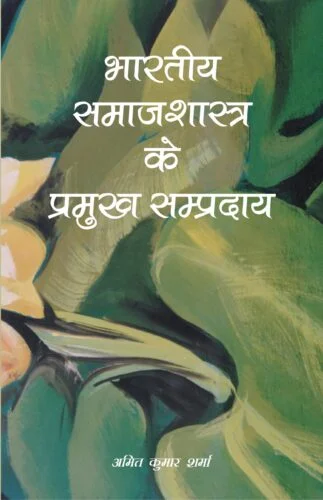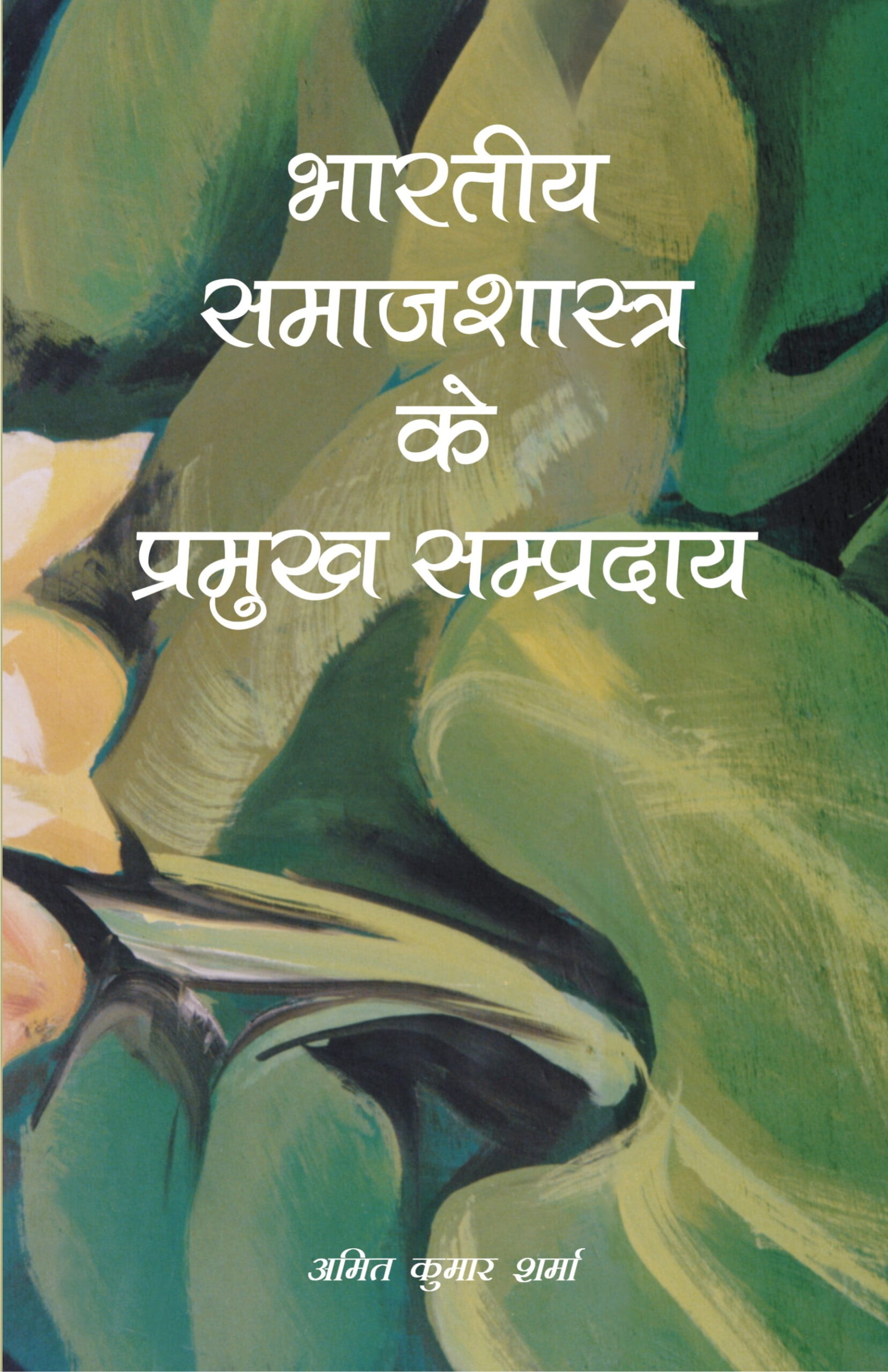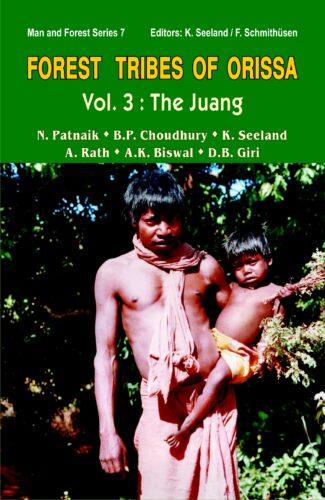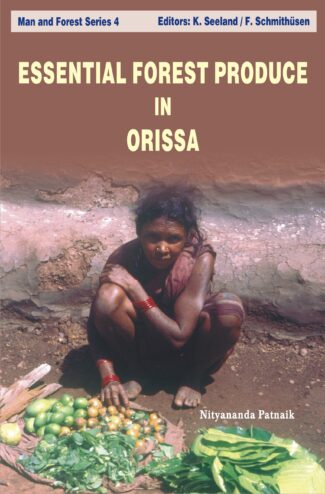

Bharatiya Samajshast...
Bharatiya Samajshastra ke Parmukh Sampardaya (PB)
by: Amit Kumar SharmaSociology, as a social science, is new to India. This volume in Hindi thus discusses the advent, teaching and development of sociology in India. It is an outstanding narration of advent and evolution of sociology in India and the major sociologists.
₹380.00 Original price was: ₹380.00.₹342.00Current price is: ₹342.00.
ISBN: 9788124606025
Year Of Publication: 2011
Edition: 1st
Pages : xix, 284 p.
Bibliographic Details : Bibliography; Index
Language : Hindi
Binding : Paperback
Publisher: D.K. Printworld Pvt. Ltd.
Size: 23
Weight: 550
Bharatiya Samaj Shastra ke Pramukh Sampradaya is a book in Hindi language that deals with the advent, teaching and development of Sociology in India.It is an original book that deals with the major Sociologists in India. This book divides the whole history of sociology in India into nine interesting chapters. This book is an outstanding narration of the advent and evolution of Sociology in India. For a long time there was a need of such a book in Hindi .This is a helpful book for the teachers, students and researchers in various colleges, Universities and research institutions. For the researchers in Hindi literature, Cinema and Culture this can be used as a reference book. This book is also helpful for the UGC. / NET aspirants in Sociology.

- Sale!Gender, Space and Resistance: Women and Theatre in India by: Anita Singh, Tarun Tapas Mukherjee,
₹1,800.00Original price was: ₹1,800.00.₹1,620.00Current price is: ₹1,620.00.This book explores the presence and contribution of women to the recorded history of Indian theatre. It provides a platform to raise, discuss and debate issues, aesthetics and techniques connected with the Indian theatre in the backdrop of political, social and moral values of women in theatre. An attempt to fill up the vacuum of scholarly literature on the role of women in theatre, this book expects to create enough academic value and interest. Its content unearths the dynamics of gender in the history of theatre. It extensively deals with the theoretical and practical aspects of women’s theatre.
This anthology also addresses the various social issues associated with gender inequality through essays, play-texts and interviews. In a similar vein, it delves deep into the relationship among theatre, public/private sphere and gender. This work purports to address a variety of needs of feminist researchers and laymen who are not conversant with the contribution of women to theatre and its obvious political and transformative intent.
This collection also intends to see how the theatrical space could unsettle the gendered binaries regulating women’s presence in public space, and proposes to see why and how relevant feminist politics is in re-imagining a vibrant and inclusive concept of gender fairness and justice in contemporary India. It extends high referral value for researchers, students and even laymen with interest in the role of women in theatre. - Sale!Bodoland by: Hakhrari
₹895.00Original price was: ₹895.00.₹806.00Current price is: ₹806.00.The Bodo, an ancient group of Northeast India, is resorting to a movement for autonomy. A section of the Bodo educated youth being thoroughly disillusioned with constitutional safeguards, like autonomy arragements, joined a secessionist struggle, which has not only radically transformed the character and substance of the Bodo assertion from autonomy to secession in terms of goals, but also the methods of achieving it, by showing prefernce to voilence. Tracing historical background of the Bodos, this book seeks to analyse the emergence of the NDFB, its supoort base, and its major demands and strategies to achieve them. It also examines the factors that persuaded the NDFB to adopt extermist methods for achieving its goals, the nature and extent of support for the NDFB’s demand for a Savereign Bodoland, the relationship of NDFB with the other Bodo organiztions and responses of the BTC, as well as Union and State Goverments to the demands of the NDFB.
- Sale!Evil by: Notker Wolf, Lep G. Linder,
₹275.00Original price was: ₹275.00.₹248.00Current price is: ₹248.00.This book is an indispensable guide for an up-to-date system of values. What once used to be deadly sins threatening human salvation have now become socially acceptable; envy and greed are the driving forces behind a ruthless economic world; there are outbreaks of anger on the streets and in the football stadiums. The name of the game is manifold: stubbornness, impatience, narcissism and disloyalty.
Notker Wolf has taken an look at an interesting development. He finds examples in the Bible, in the ancient myths, in current affairs. His conclusion: the deadly sins are as relevant today as ever before and it would be advisable not to leave the field open to them in our (western) economic and social systems, but rather to counter them with a foundation of values that are up to date. Readers will recognize themselves and our day and age in the mirror of this book. - Sale!Forest Tribes of Orissa Vol. 3: The Juang by: Nityananda Patnaik, B.P. Choudhury, Klaus Seeland, A. Rath, A.K. Biswal, D.B. Giri,
₹900.00Original price was: ₹900.00.₹810.00Current price is: ₹810.00.In the management of renewable resources, forests have undeniably a vital role, and today, as never before, their conservation is an urgency. In view of this dire necessity the series Man and Forest tries to highlight the relevance of indigenous knowledge of various South Asian tribal communities in the sustainable management of forests/local resources more specially against the growing challenges of economic development vis-à-vis environmental hazards and a rapidly declining resource base. A scientific inquiry into indigenous knowledge is an effort to discover/rediscover the tribals’ traditional modes of production and conservation. For them it is the only source to cope with the problems of modernity affecting their lives and precarious environments. Forest Tribes of Orissa: The Juang is the seventh monograph in the series Man and Forest and, after the publication of an account of the forest world of the Dongaria Kondh in 2002, and the Kuttia Kondh in 2006. Being a tribal community in transition, the authors have tried to document and thus safeguard its local traditional knowledge of conservation, use and management of forests and natural resources. They give an account of how the Juang classify trees and other plants, hills, forests, crops and animals. Their subsistence economy, agricultural system, social organization, religious beliefs and other important socio-cultural aspects of forest life have been extensively treated. The lifestyle of this tribal community is finally reflected on the background of forest policy and the impact it has on their livelihood. The present book is, as most of the volumes in the series, the outcome of nearly ten years’ research venture involving an interdisciplinary, intercultural team of sociologists, ethnobotanists, and social anthropologists
- Sale!Essential Forest Produce in Orissa by: Nityananda Patnaik
₹450.00Original price was: ₹450.00.₹405.00Current price is: ₹405.00.This volume is the 4th in the ongoing Man and Forest series a series trying to highlight the relevance of indigenous knowledge of various tribal communities in the sustainable management of forests and local resources more specially against the growing challenges of economic development vis-à-vis environmental hazards and a declining resource base. Orissas forests, covering a little over 57,000 sq km (or 36.72% of the states geographical area), are known to have a profusion of minor forest produce (MFP) which has been upgraded due to its importance for tribal livelihood and is called Essential Forest Produce (EFP) through the book. It comprises simple fodder and fuelwood to baffling medicinal herbs, besides numerous economically important plants yielding dyes, tannin, fibres, flosses, essential oils, edible fruits, seeds, leaves, honey among many other items. Yet, despite its enormous economic potential, about three-fourths of this forest wealth has so far been unutilized by the tribal communities largely because of its inaccessibility. With a holistic product profile of Orissas forests, an eminent anthropologist here looks for the rationale behind the vastly deficient utilization of its EFP identifying the entire range of causes: from the tribals incapacity to reach this forest resource to their exploitation by middlemen/traders/moneylenders to the larger forest policy issues. Dr Patnaik also proposes measures which would help tribals not only to actualize the inherent potential of EFP but, in turn, strengthen their economy as well. It is a painstaking empirical study of interest to social anthropologists, environmental activists, foresters, development economists, forest resource economists planners and policy-makers.










